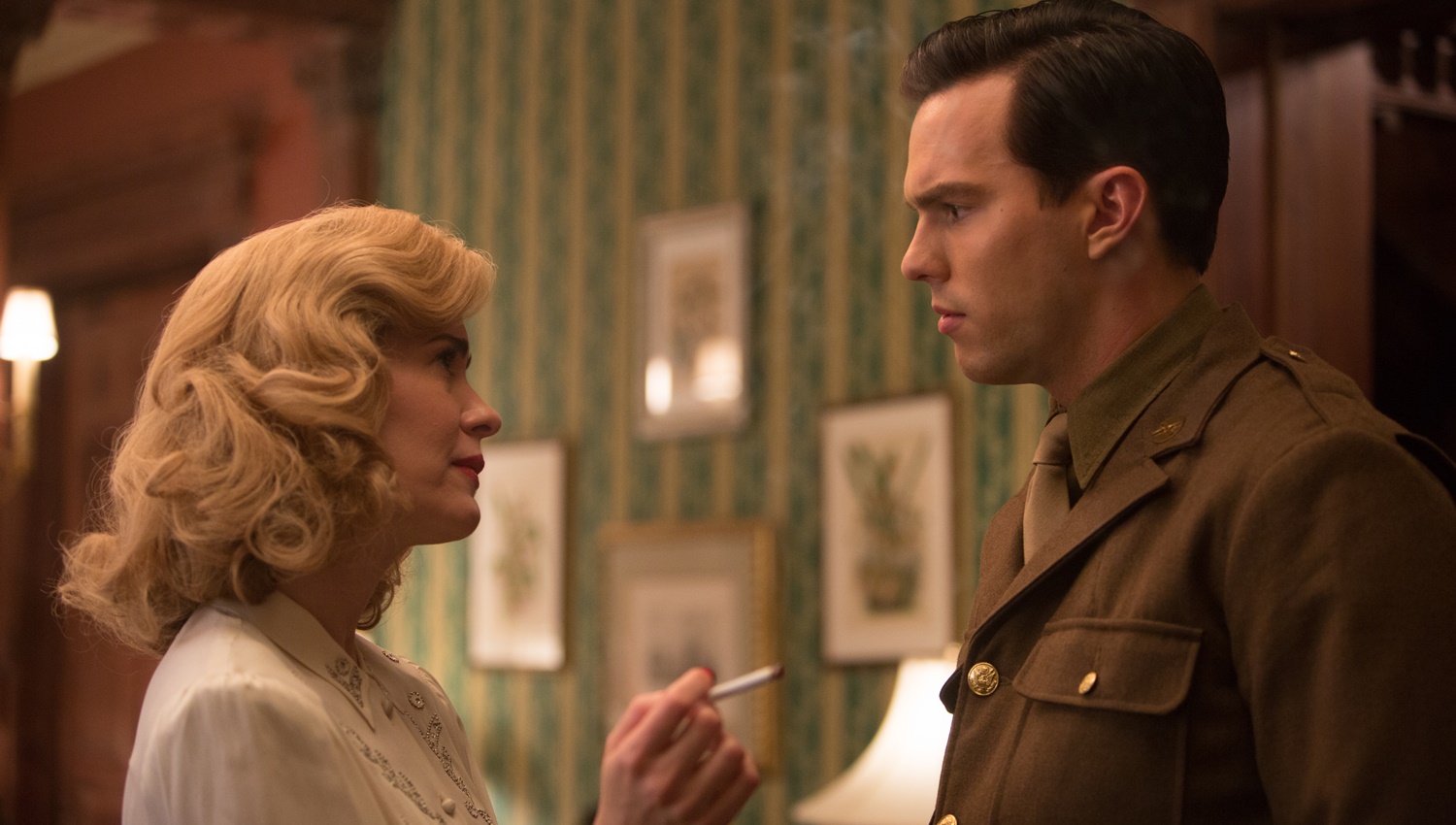
Rebel in the Rye
Dustin Chase
In some of the early scenes of the film, we get a graphic picture of J. D. Salinger’s personality as a highly self-confident, even cocky, social climber in his flirtations with Oona O’neil (Eugene’s daughter, charmingly played by Zoey Deutch). He does capture her attention just by the way he introduces himself, and although she flits away very quickly, she’ll remember him later, and they will develop a romantic relationship.
The essence of the film is about Salinger’s passion for writing and a compelling need to be published. This is partly related to his father’s (Garber) wish that he would go into business rather than pursuing the arts, which is encouraged by his mother (Davis). Interestingly, his grandfather had insisted that his father Sol give up piano and go into business, which he did, and the family lived in very comfortable circumstances. But horrified at the thought, J. D. was not to be deterred. I have heard from writers, as well as other artists, that to practice their craft is a given like breathing, not to be ignored, as I suppose was the case for Salinger.
Salinger subsequently developed a mentoring relationship with one of his professors, the unorthodox Whit Burnett (Spacey), who had an eye for talent and could see into Salinger’s having antiauthority issues and knew how to deal with them. Burnett was just what Salinger needed for continual encouragement, tolerance for Salinger’s biting sarcasm, and vacillation between feelings of superiority and hopelessness. He is shown to be critically responsible for Salinger’s writing and finishing his most famous novel, Catcher in the Rye, which is partly autobiographical. Salinger’s agent, Dorothy Olding (Paulson) also provided support, and was instrumental in his getting a lucrative contract with The New Yorker to publish his short stories.
The scenes with Hoult and each of these characters enliven the pace and pulls us in.
Although the meaning in the title is a puzzle, Rebel in the Rye (1951) does an excellent job in capturing Salinger’s personality, his prickliness, his need for privacy, his condescension toward others and an unforgiving attitude, along with the single-mindedness with which he approached his profession. Even family seemed to have been a secondary priority. He served in the military during WWII, and suffered thereafter from what appears to be PTSD, from which he received some measure of relief in Buddhism and meditation.
Director Danny Strong, who wrote the screenplay based on Kenneth Slawenski’s novel, J. D. Salinger: A Life, relates his story well, although perhaps superficially, showing Salinger’s relationships with family members, friends, publishers, his work, and people in general. Perhaps the span of time Strong tries to cover is too wide, given the rich experiences of its subject; this necessarily abbreviates many events that could have given the work more depth and texture.
Nicholas Hoult captures the look and personality of Salinger in a convincing way, and the supporting cast is very fine as well, especially Kevin Spacey, Sarah Paulson and Zoey Deutch. The scenes with Hoult and each of these characters enliven the pace and pulls us in. This is distinctly in contrast to the recluse we have come to know as Salinger, who lived in the woods and never published again after 1953, although he lived for another 57 years.
Final Thought
An account of a recluse compelled above all else to write: J. D. Salinger
